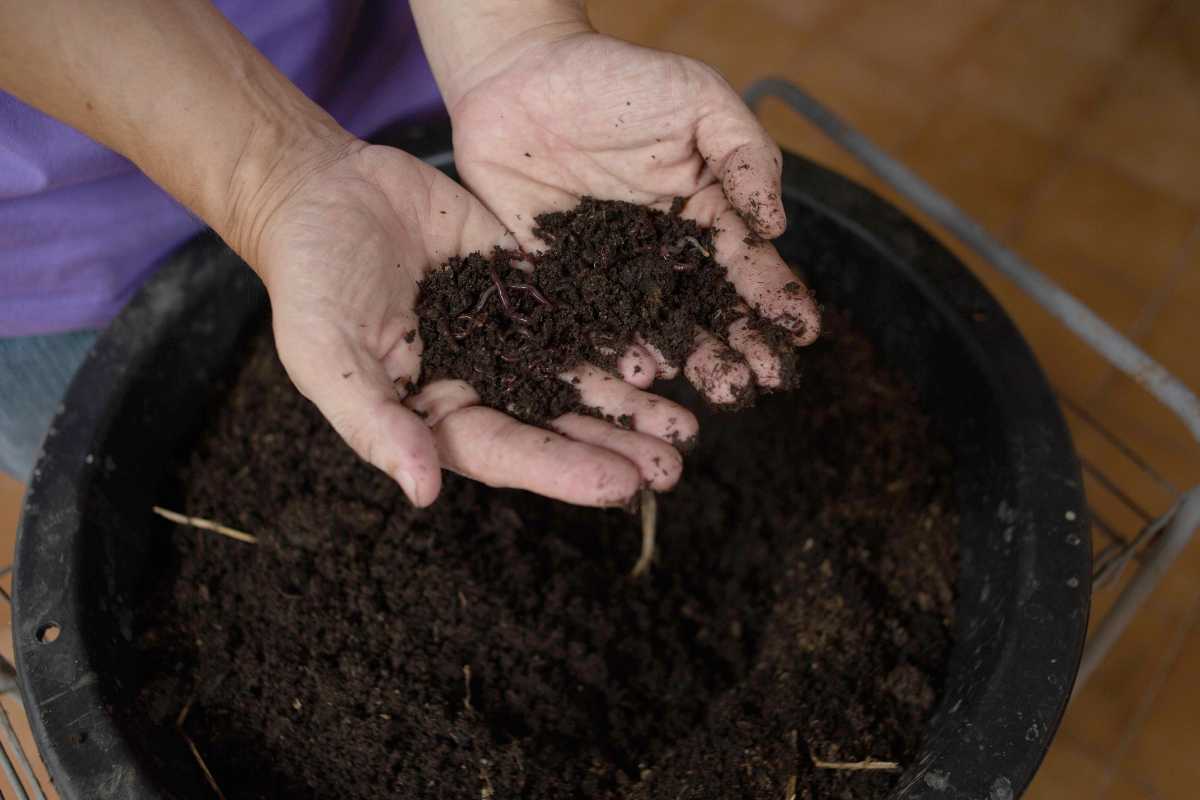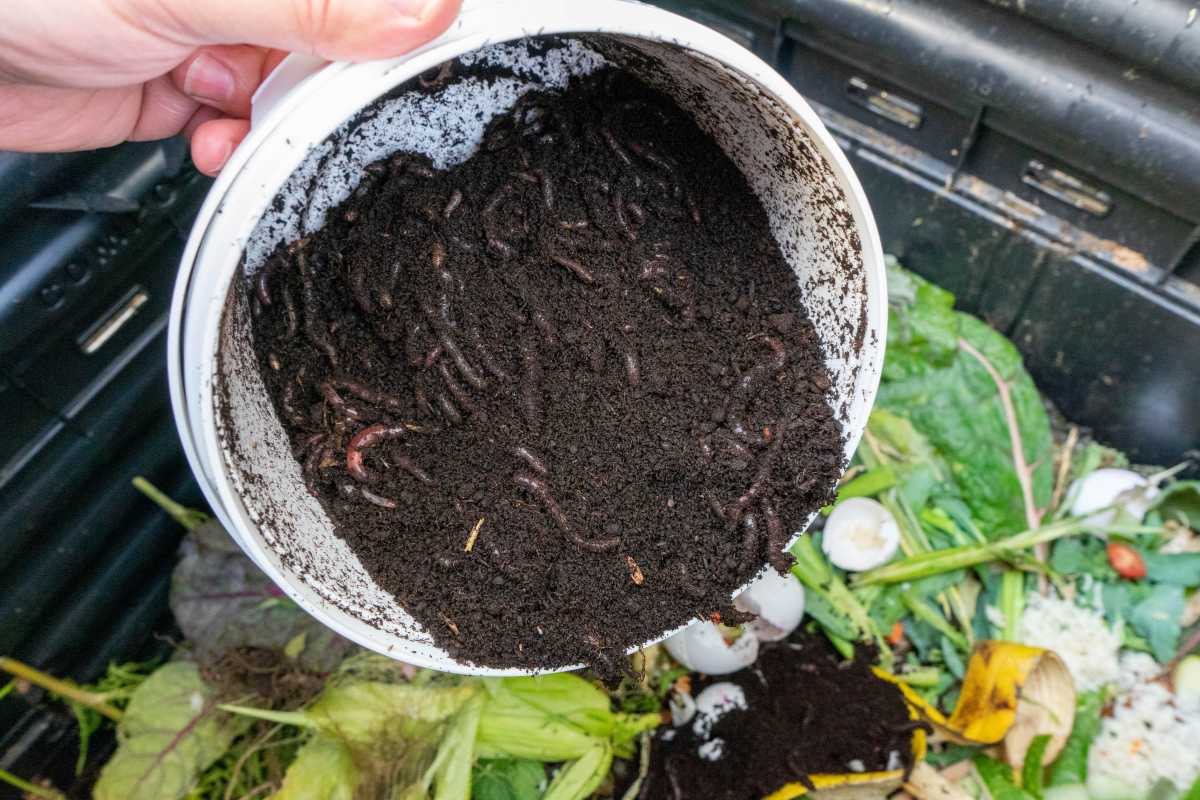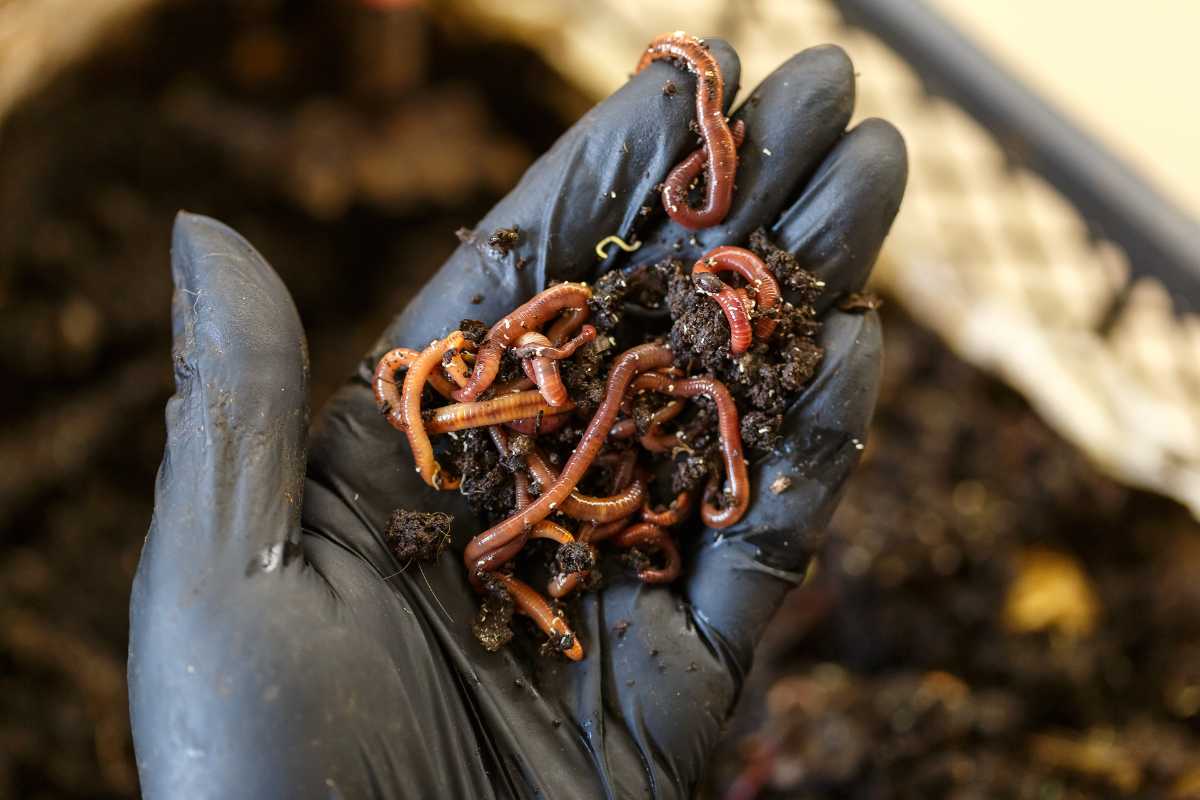When it comes to composting, vermicomposting is one of the most popular methods.
The terms’ vermicompost’ and ‘worm castings’ are often used interchangeably, but they are different.
That’s not to say they aren’t linked and while they can both be used to describe the same thing, they aren’t, strictly speaking, the same substance.
Many gardeners will use these two words to describe the same thing, and they wouldn’t necessarily be incorrect. However, if you’re going to get technical, it comes down to the substance that makes these two things up.
This article will describe Vermicompost vs Worm Castings, and go into detail about the differences and similarities between the two.
What are Worm Castings?

Worm casting is organic material that has been digested and then excreted by worms. In simple terms, it’s worm poop.
This worm poop is an amazing substance full of beneficial nutrients and microorganisms that offer many advantages for plants when used in the soil.
Fresh worm castings are often referred to as black gold by gardeners for their incredibly valuable properties when it comes to working as a soil amendment and fertilizer for healthy plant growth.
Worm castings are the end goal of worm composting and the decomposition process. As well as its high levels of nutrients, worm castings have been found to prevent some soil-borne diseases and control the population of many bothersome bugs.
These features make organic worm castings especially useful in vegetable gardening, potting soil, and as a soil amendment.
Any outdoor composting will usually contain worm castings, as worms are an integral part of traditional composting. However, the amount of worm castings in standard compost can vary, and it would be impossible to identify worm castings in your finished compost.
What is Vermicompost?

First, we should define what vermicomposting is. Vermicomposting is the process of composting using worms.
While many types of outdoor composting use worms, vermicomposting usually consists of an enclosed system filled with composting worms. Composting worms live in the top few inches of soil and eat the organic matter found there.
These worms are usually more tolerant of higher temperatures than regular earthworms, and are much more productive when it comes to breaking down organic matter, like food waste.
Vermicompost is the product of vermicomposting. Vermicomposting is the only form of composting with a different final product name.
All other types of composting, including hot composting, in-ground composting, and composting using the bokashi system, still produce standard compost. So what makes vermicompost so special?
What sets vermicompost apart from any other kind of compost is worm castings. As this method primarily uses worms to break down the organic matter, vermicompost has a high content of worm castings compared to any other kind of compost.
So why don’t we just call it worm castings?
While vermicompost is primarily made up of worm castings, it also contains decomposed matter that hasn’t passed through a worm’s gut.
A garden shovel harvest’s fresh worm castings (compost) from a vermicomposter to top-dress (side-dress) fall plant starts into standing planters. Container gardening needs soil amendments to be added
Vermicompost can be mistaken for castings as it is hard to separate worm castings from other materials that decompose in the worm compost bin.
Vermicompost is just as desirable as castings and will be no less beneficial when used in your garden. This is why the two labels can be used interchangeably.
The reason that vermicompost will contain other matter is due to the fact that it is difficult to ensure that every piece of material in your worm bin will pass through a worm. In truth, even products marketed as 100% worm castings may contain a small amount of compost.
Vermicompost vs Worm Casting Differences

The only real difference between vermicompost and worm castings is that worm castings are the main ingredient of vermicompost.
You can make vermicompost with worm castings, but you cannot make worm castings with vermicompost!
Worm castings are pure worm poop. Material that has been ingested by a worm passed through the worm’s guts and then excreted.
Not all the materials in a worm compost bin will always be eaten and passed through the worms. While your worms can eat everything, including their bedding, they won’t always be able to consume it all.
For this reason, the matter that you extract out of your worm composter will be vermicompost, rather than 100% pure worm castings.
In order to be classed as finished vermicompost, the compost must contain a high ratio of worm castings.
Vermicompost vs Worm Castings Final Thoughts
While there is clearly a difference between worm castings and vermicompost, it is superficial.
Most gardeners will use the term worm castings interchangeably with vermicompost. Many products will market themselves as worm castings despite the fact that they are probably vermicompost.
The likelihood is that products called worm castings simply contain a much higher percentage of worm castings than in products that are labeled vermicompost.
Vermicompost can be harvested, used, and stored in precisely the same way as worm castings. They both contain the same beneficial nutrients and microorganisms, and you would be hard-pressed to distinguish between the two.
Read more about Using Worm Castings and Storing Worm Castings.
Here are popular worm casting options that people buy online:
Learn more about vermicompost and composting:



